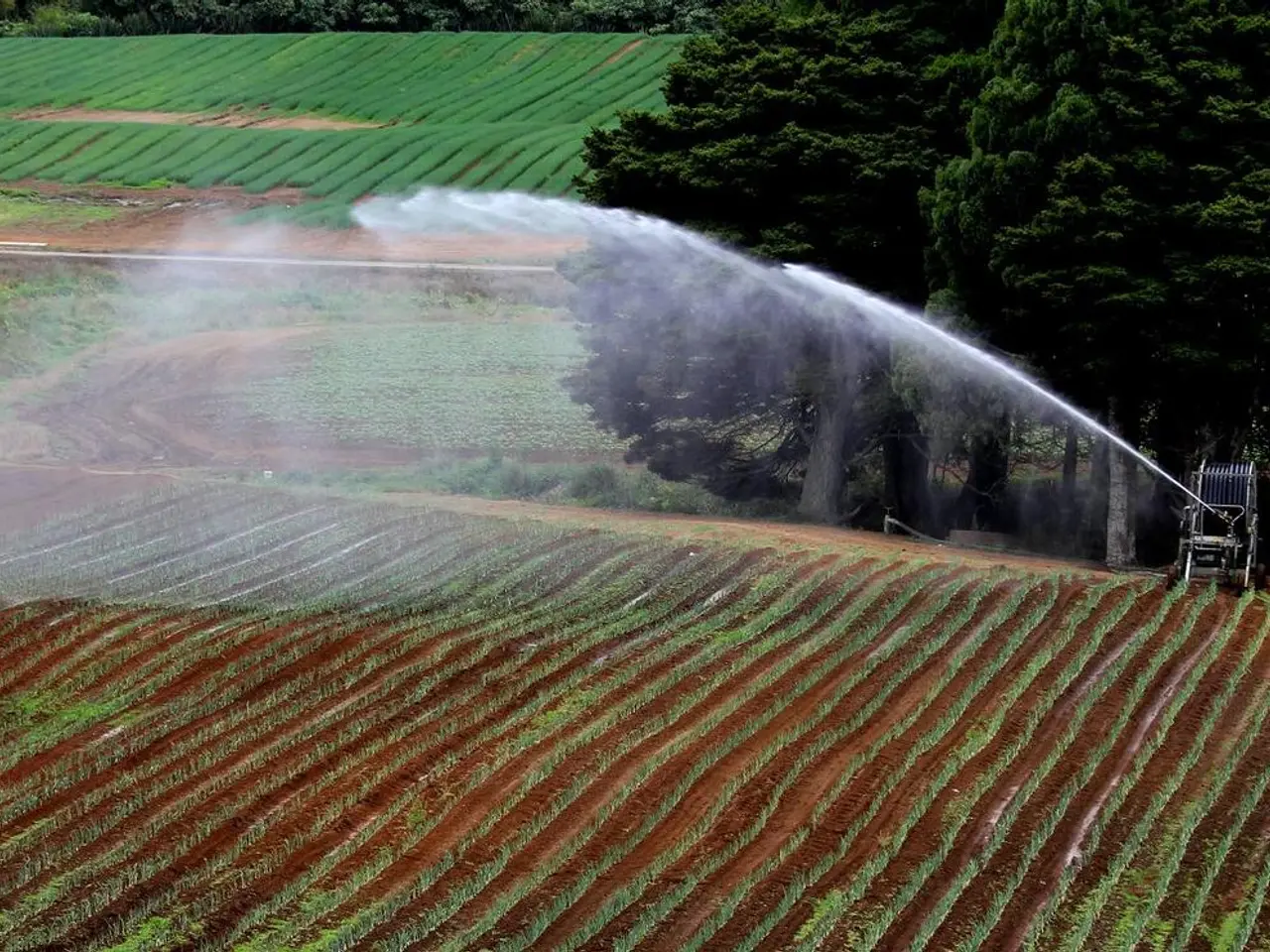Support for Women Affected by Drought Crises
In the drought-stricken region of Turkana, Kenya, the population is facing a significant challenge. According to the Turkana County 2019 SMART survey, 25.6% of the population are suffering from Global Acute Malnutrition. Amidst this crisis, Welthungerhilfe, a global organisation dedicated to ending hunger and poverty, is working on site with local partners such as Lokado to offer women and children a solid start towards a healthy and independent life.
Welthungerhilfe's efforts in Turkana are multifaceted, aiming to address the root causes of food insecurity and malnutrition. The organisation's support typically includes water supply interventions, agricultural support, capacity building, and emergency relief.
Water supply interventions involve drilling and rehabilitating boreholes, installing sustainable water systems, and improving access to clean water. This is crucial in mitigating the impacts of the extended drought in the region.
In terms of agricultural support, Welthungerhilfe promotes drought-resilient farming and pastoral practices to enhance food security. Training local communities in these practices equips them with the skills necessary to adapt to the harsh climatic conditions.
Capacity building is another key aspect of Welthungerhilfe's work. By training local communities to manage water and natural resources sustainably, the organisation empowers them to take control of their own livelihoods.
During drought crises, Welthungerhilfe provides food aid and nutrition support to those in need. This emergency relief is essential in preventing further malnutrition and supporting the most vulnerable members of the community.
The project in Turkana also includes measures such as vegetable gardens, poultry farms, village savings and credit programs, and nutritional and culinary courses. These initiatives are designed to improve the diets and livelihoods of the local population.
For instance, 300 women are being trained in vegetable cultivation, learning methods like terraced gardens and submerged wet patches. Similarly, up to 450 women in Turkana West are receiving training in livestock husbandry to increase milk production during the dry season and improve animal physical condition.
Village savings and loan groups are also helping 900 participating women improve their diets and quality of life through loans and allotments. These groups are proving to be an effective tool in empowering women and providing them with the resources they need to improve their living conditions.
The project is also teaching 1,200 women about various topics including infant nutrition, breastfeeding, maternal nutrition, and dealing with special circumstances. This comprehensive approach ensures that women are equipped with the knowledge they need to make informed decisions about their health and the health of their families.
One of the women benefiting from this project is Kula Napasi, a 44-year-old woman joining the project to secure her livelihood and improve her diet. Another is Aita Ngatotin, a 36-year-old Foundation Partnerships Officer who is carrying a 25-kilogramme sack of charcoal for nearly 50 kilometres to the Kakuma refugee camp as a means to earn money for her family.
Aita's life has been transformed by the project. She credits clean drinking water, food packages, financial grants, and additional food for children and pregnant or breastfeeding women for the change. Aita is one of the "drought widows" in the region of Turkana, but she is hopeful for the future. She requests more women be accepted into the project to strengthen their community.
In conclusion, Welthungerhilfe's interventions in Turkana are making a significant difference in the lives of women and children. By addressing the root causes of food insecurity and malnutrition, the organisation is empowering local communities to take control of their own livelihoods and build a brighter future.
[1] Water Services Trust Fund (WSTF) Kenya: Institutional Reform and Governance [2] Kenya Water and Sanitation Regulatory Board (KWSRB)
- To enhance health and wellness, Welthungerhilfe is promoting environmental-science-based drought-resilient farming and pastoral practices for local communities in Kenya.
- In the realm of lifestyle improvements, the organization is also teaching women about various aspects of nutrition, including infant nutrition, breastfeeding, and maternal health.
- For fitness and exercise, Welthungerhilfe is training local women in vegetable cultivation, introducing methods like terraced gardens and submerged wet patches.
- In the face of climate change, the organization's work in water supply interventions is crucial, involving drilling and rehabilitating boreholes for clean water access.
- To support women's health, Welthungerhilfe is offering training in livestock husbandry to increase milk production during the dry season, thus improving animal physical condition.
- The project's initiatives extend to food-and-drink and home-and-garden sectors, with vegetable gardens and poultry farms being created for the benefit of the local population.
- In the business realm, the project includes village savings and credit programs, providing an avenue for women to improve their diets and quality of life through loans and allotments.
- To strengthen relationships within the community, 1,200 women are being taught about various topics, ensuring they are equipped with the knowledge needed to make informed decisions about their health and families.
- In the field of finance, financial grants are provided to families in need, aiding them in coping with the impacts of drought crises.
- Travel-related improvements are being made through the project's support of pet owners, as they carry goods to nearby locations to earn money for their families, like Aita Ngatotin, who traverses nearly 50 kilometers to the Kakuma refugee camp to sell charcoal.





